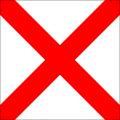Ku (kana)
く, in hiragana or ク in katakana, is one of the Japanese kana, which each represent one mora. Both represent [ku͍] and their shapes come from the kanji 久.
| ku | ||||
|---|---|---|---|---|
| ||||
| transliteration | ku | |||
| translit. with dakuten | gu | |||
| translit. with handakuten | (ngu) | |||
| hiragana origin | 久 | |||
| katakana origin | 久 | |||
| spelling kana | クラブのク (Kurabu no "ku") | |||
| kana gojūon | ||||||||||||||||||||||||||||||||||||||||||||||||||
|---|---|---|---|---|---|---|---|---|---|---|---|---|---|---|---|---|---|---|---|---|---|---|---|---|---|---|---|---|---|---|---|---|---|---|---|---|---|---|---|---|---|---|---|---|---|---|---|---|---|---|
|
||||||||||||||||||||||||||||||||||||||||||||||||||
This kana may have a dakuten added, transforming it into ぐ in hiragana, グ in katakana and gu in Hepburn romanization. The dakuten's addition also changes the sound of the syllable represented, to [ɡu͍] in initial positions and varying between [ŋu͍] and [ɣu͍] in the middle of words. A handakuten (゜) does not occur with ku in normal Japanese text, but it may be used by linguists to indicate a nasal pronunciation [ŋu͍].
In the Ainu language, the katakana ク can be written as small ㇰ, representing a final k sound as in アイヌイタㇰ Ainu itak (Ainu language).[1] This was developed along with other extended katakana to represent sounds in Ainu that are not found in standard Japanese katakana.
| Forms | Rōmaji | Hiragana | Katakana |
|---|---|---|---|
| Normal k- (か行 ka-gyō) |
ku | く | ク |
| kuu kū |
くう, くぅ くー |
クウ, クゥ クー | |
| Addition dakuten g- (が行 ga-gyō) |
gu | ぐ | グ |
| guu gū |
ぐう, ぐぅ ぐー |
グウ, グゥ グー |
| Other additional forms | |||||||||||||||||||||||||||||||||||||
|---|---|---|---|---|---|---|---|---|---|---|---|---|---|---|---|---|---|---|---|---|---|---|---|---|---|---|---|---|---|---|---|---|---|---|---|---|---|
|
| ||||||||||||||||||||||||||||||||||||
Stroke order
 Stroke order in writing く |
 Stroke order in writing ク |


Other communicative representations
| Japanese radiotelephony alphabet | Wabun code |
| クラブのク Kurabu no "Ku" |
 |
|
 |
 |
| Japanese Navy Signal Flag | Japanese semaphore | Japanese manual syllabary (fingerspelling) | Braille dots-146 Japanese Braille |
- Full Braille representation
| く / ク in Japanese Braille | |||||||
|---|---|---|---|---|---|---|---|
| く / ク ku | ぐ / グ gu | くう / クー kū | ぐう / グー gū | Other kana based on Braille く | |||
| きゅ / キュ kyu | ぎゅ / ギュ gyu | きゅう / キュー kyū | ぎゅう / ギュー gyū | ||||
| Preview | く | ク | ク | ㇰ | ㋗ | |||||
|---|---|---|---|---|---|---|---|---|---|---|
| Unicode name | HIRAGANA LETTER KU | KATAKANA LETTER KU | HALFWIDTH KATAKANA LETTER KU | KATAKANA LETTER SMALL KU | CIRCLED KATAKANA KU | |||||
| Encodings | decimal | hex | decimal | hex | decimal | hex | decimal | hex | decimal | hex |
| Unicode | 12367 | U+304F | 12463 | U+30AF | 65400 | U+FF78 | 12784 | U+31F0 | 13015 | U+32D7 |
| UTF-8 | 227 129 143 | E3 81 8F | 227 130 175 | E3 82 AF | 239 189 184 | EF BD B8 | 227 135 176 | E3 87 B0 | 227 139 151 | E3 8B 97 |
| Numeric character reference | く | く | ク | ク | ク | ク | ㇰ | ㇰ | ㋗ | ㋗ |
| Shift JIS (plain)[2] | 130 173 | 82 AD | 131 78 | 83 4E | 184 | B8 | ||||
| Shift JIS-2004[3] | 130 173 | 82 AD | 131 78 | 83 4E | 184 | B8 | 131 236 | 83 EC | ||
| EUC-JP (plain)[4] | 164 175 | A4 AF | 165 175 | A5 AF | 142 184 | 8E B8 | ||||
| EUC-JIS-2004[5] | 164 175 | A4 AF | 165 175 | A5 AF | 142 184 | 8E B8 | 166 238 | A6 EE | ||
| GB 18030[6] | 164 175 | A4 AF | 165 175 | A5 AF | 132 49 152 48 | 84 31 98 30 | 129 57 188 52 | 81 39 BC 34 | ||
| EUC-KR[7] / UHC[8] | 170 175 | AA AF | 171 175 | AB AF | ||||||
| Big5 (non-ETEN kana)[9] | 198 179 | C6 B3 | 199 71 | C7 47 | ||||||
| Big5 (ETEN / HKSCS)[10] | 198 245 | C6 F5 | 199 171 | C7 AB | ||||||
| Preview | ぐ | グ | く゚ | ク゚ | ||||
|---|---|---|---|---|---|---|---|---|
| Unicode name | HIRAGANA LETTER GU | KATAKANA LETTER GU | HIRAGANA LETTER BIDAKUON NGU[11] | KATAKANA LETTER BIDAKUON NGU[11] | ||||
| Encodings | decimal | hex | decimal | hex | decimal | hex | decimal | hex |
| Unicode | 12368 | U+3050 | 12464 | U+30B0 | 12367 12442 | U+304F+309A | 12463 12442 | U+30AF+309A |
| UTF-8 | 227 129 144 | E3 81 90 | 227 130 176 | E3 82 B0 | 227 129 143 227 130 154 | E3 81 8F E3 82 9A | 227 130 175 227 130 154 | E3 82 AF E3 82 9A |
| Numeric character reference | ぐ | ぐ | グ | グ | く | く | ク | ク |
| Shift JIS (plain)[2] | 130 174 | 82 AE | 131 79 | 83 4F | ||||
| Shift JIS-2004[3] | 130 174 | 82 AE | 131 79 | 83 4F | 130 247 | 82 F7 | 131 153 | 83 99 |
| EUC-JP (plain)[4] | 164 176 | A4 B0 | 165 176 | A5 B0 | ||||
| EUC-JIS-2004[5] | 164 176 | A4 B0 | 165 176 | A5 B0 | 164 249 | A4 F9 | 165 249 | A5 F9 |
| GB 18030[6] | 164 176 | A4 B0 | 165 176 | A5 B0 | ||||
| EUC-KR[7] / UHC[8] | 170 176 | AA B0 | 171 176 | AB B0 | ||||
| Big5 (non-ETEN kana)[9] | 198 180 | C6 B4 | 199 72 | C7 48 | ||||
| Big5 (ETEN / HKSCS)[10] | 198 246 | C6 F6 | 199 172 | C7 AC | ||||
References
| Look up く, ぐ, ク, or グ in Wiktionary, the free dictionary. |
- http://www.alanwood.net/unicode/katakana_phonetic_extensions.html
- Unicode Consortium (2015-12-02) [1994-03-08]. "Shift-JIS to Unicode".
- Project X0213 (2009-05-03). "Shift_JIS-2004 (JIS X 0213:2004 Appendix 1) vs Unicode mapping table".
- Unicode Consortium; IBM. "EUC-JP-2007". International Components for Unicode.
- Project X0213 (2009-05-03). "EUC-JIS-2004 (JIS X 0213:2004 Appendix 3) vs Unicode mapping table".
- Standardization Administration of China (SAC) (2005-11-18). GB 18030-2005: Information Technology—Chinese coded character set.
- Unicode Consortium; IBM. "IBM-970". International Components for Unicode.
- Steele, Shawn (2000). "cp949 to Unicode table". Microsoft / Unicode Consortium.
- Unicode Consortium (2015-12-02) [1994-02-11]. "BIG5 to Unicode table (complete)".
- van Kesteren, Anne. "big5". Encoding Standard. WHATWG.
- Unicode Consortium. "Unicode Named Character Sequences". Unicode Character Database.


